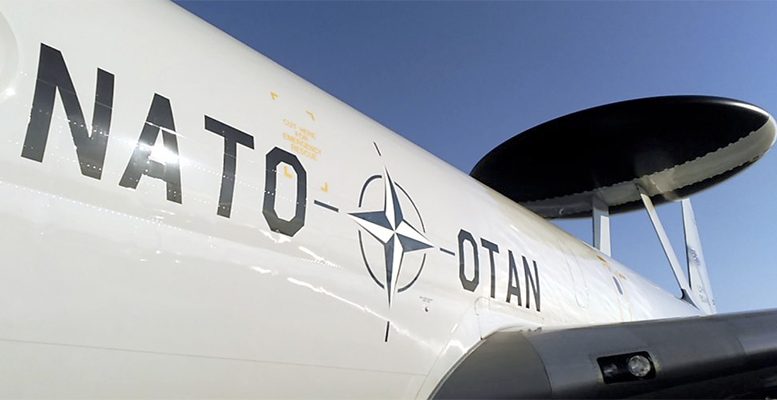Xavier Colás (Moscow) | Although NATO is an alliance based on the sum of military power, emotions count for something in the day by day of the organisation. For the Russian president, NATO is another of the US’ foreign policy tools, where there are no allies “but just vassal states”. And it’s very unlikely that Trump will change his view. In Moscow, NATO is seen as the big determining factor in the relations with the West. The Atlantic Alliance is not just seen as a prolongation of the US army, but the EU itself is seen as “NATO in disguise”. Putin was very clear earlier in June when he said that “it would be a big help if NATO was dismembered”, although for the time being, he says, he doesn’t contemplate this scenario.
Paradoxically, it’s the US which has caused the rift this year. Donald Trump travelled to Brussels in May, where it was obvious that he differs from the EU in almost everything apart from the fight against terrorism. In some offices in Central Europe, something was broken for ever. He is the first American president who has not committed to upholding Article V of the treaty which controls military organisation and ensures mutual defense. An article which has only been invoked once: and that was by the US, after 9-11.
Trump believes the Europeans owe NATO “enormous amounts of money”. In reality, no country is a debtor. It is true that, apart from the US, only four members (the UK, Poland, Greece and Estonia) spend at least 2% of GDP on defence. This is a political commitment which goes back to 2014 and which they promised to comply with before end-2024. But NATO was conceived as something more than just a bunch of transactions. “Trump is right. We need to shake off the dreaminess of guaranteed peace that reigned before the annexing of the Crimea,” Lithuania’s Ministry of Defence says.
The Baltic countries and Poland reiterate that Russia is a threat to their security. Moscow has reassured them that it has no plans to attack any NATO country. But Gustav Gressel, an analyst at ECFR, believes they have reasons to be concerned: “Russia’s foreign policy is going to continue to count on arms.” The Russians have seen that “aggression works”, even though it doesn’t win an undisputed victory: Russian intervention in Georgia and the Ukraine prevented them from joining NATO and Russian rearmament “has continued despite the budget crisis”.
It could have been different. In an interview with filmaker Oliver Stone, Putin said he thought about Russia’s joining NATO during a conversation with Bill Clinton. For analyst Alexander Baunov, from the Carnegie in Moscow, it’s difficult to imagine: “all the members of NATO are subject to the US and Russian couldn’t be”. It’s important to gauge the extent of anti-western feeling there is in Moscow’s stance on NATO. The Russians subscribe to the feeling of “enclosed strength” and consider their unfavourable score at the end of the Cold War as unjust. NATO’s expansion towards the east is stoking these two feelings, despite the fact that, as former Russian MP Ilya Ponomarev recalls (the only one who voted against the annexing of the Crimea) “there was never any written commitment about not advancing towards the east.”
“We understand NATO’s value or the lack of it and the danger it represents for us. We are worried about the way decisions are taken,” Putin has said. It’s the chain of command which Moscow rejects, the unilateralism disguised as multilateralism. Then there is is also its interest in destroying the French-German axis within the EU, supporting Le Pen and using its media to fuel the conflictive issue of the refugees taken in by Merkel.





